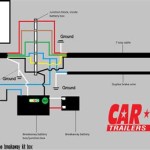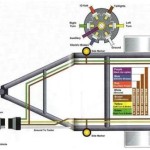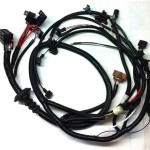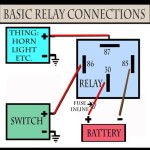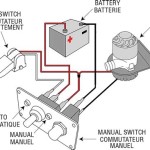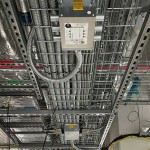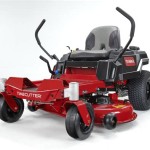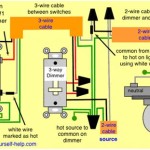A trailer wiring harness kit is an electrical assembly installed on a tow vehicle to provide power and lighting functions to a towed trailer. It includes wires, connectors, and a converter box that adapts the vehicle’s electrical system to the trailer’s lighting system. For instance, the Curt 56345 T-Connector Vehicle-to-Trailer Wiring Harness is a 4-way flat connector kit designed for vehicles with a standard 4-pin trailer wiring system.
Trailer wiring harness kits are essential for safe and legal towing, as they ensure that the trailer’s lights and turn signals are operational. They offer various benefits, including improved visibility for other vehicles, increased safety for both the driver and trailer, and compliance with legal requirements in many jurisdictions. A significant historical development in trailer wiring harness kits was the introduction of the standardized 4-pin and 7-pin connectors, which simplified the connection process and ensured compatibility between different vehicles and trailers.
In this article, we will delve deeper into the components, installation process, and troubleshooting techniques for trailer wiring harness kits, helping readers understand their importance and equipping them with the knowledge to properly maintain and repair these essential towing accessories.
A trailer wiring harness kit is an essential component for safe and legal towing. It ensures that the trailer’s lights and turn signals are operational, promoting visibility and communication with other vehicles on the road. Understanding the key aspects of trailer wiring harness kits is crucial for proper selection, installation, and maintenance.
- Components: Wires, connectors, converter box
- Types: 4-pin, 7-pin, vehicle-specific
- Installation: Requires electrical knowledge and tools
- Compatibility: Match vehicle and trailer electrical systems
- Safety: Ensures proper lighting and signaling
- Legal Compliance: Meets regulations in many jurisdictions
- Troubleshooting: Identify and fix electrical issues
- Maintenance: Inspect and clean connections regularly
- Accessories: Additional features like brake controllers and reverse lights
These key aspects encompass the various dimensions of trailer wiring harness kits. Understanding their components and compatibility ensures proper installation and functionality. Troubleshooting and maintenance help prevent electrical issues and ensure safety. Accessories expand the capabilities of the wiring harness to meet specific towing needs. By considering these aspects, individuals can make informed decisions, ensuring the safe and effective operation of their trailer wiring systems.
Components
The components of a trailer wiring harness kit are essential for establishing a reliable electrical connection between the tow vehicle and the trailer. These components work together to transmit power and lighting signals, ensuring the safe and legal operation of the trailer on the road.
- Wires: The wires in a trailer wiring harness kit are typically made of copper and come in various gauges to handle different electrical loads. They carry power from the tow vehicle’s battery to the trailer’s lights, brakes, and other electrical components.
- Connectors: Connectors are used to join the wires from the tow vehicle and the trailer. They come in various types, including 4-pin and 7-pin connectors, and are designed to ensure a secure and weatherproof connection.
- Converter box: The converter box is an essential component for trailers that have different electrical systems than the tow vehicle. It converts the tow vehicle’s electrical signals to match the trailer’s electrical system, ensuring proper operation of the trailer’s lights and brakes.
These components play a vital role in the overall functionality and safety of a trailer wiring harness kit. Choosing high-quality components and ensuring proper installation are crucial for reliable electrical connectivity between the tow vehicle and the trailer.
Types
Trailer wiring harness kits come in various types, each designed to meet specific needs and vehicle compatibility. Understanding the different types is essential for selecting the right harness kit for your towing setup.
-
4-pin Connector:
The 4-pin connector is the most basic type of trailer wiring harness. It provides the essential lighting functions, including taillights, brake lights, and turn signals. This type is commonly used for small trailers, such as utility trailers and boat trailers.
-
7-pin Connector:
The 7-pin connector provides additional functionality compared to the 4-pin connector. It includes all the functions of the 4-pin connector, plus it adds reverse lights, electric brakes, and auxiliary power. This type is suitable for larger trailers, such as travel trailers and horse trailers, that require more electrical capabilities.
-
Vehicle-specific Wiring Harnesses:
Vehicle-specific wiring harnesses are designed to be plug-and-play for specific vehicle makes and models. They eliminate the need for cutting and splicing wires, making installation easier. These harnesses are typically more expensive than universal harnesses but offer a more convenient and reliable solution.
Choosing the right type of trailer wiring harness kit depends on the electrical requirements of your trailer and the towing capabilities of your vehicle. By matching the correct harness to your setup, you ensure proper functionality, safety, and compliance with legal regulations.
Installation
Installing a trailer wiring harness kit requires electrical knowledge and proficiency in handling tools. It involves tasks such as identifying electrical wires, making proper connections, and ensuring a secure and weatherproof installation. Understanding the specific components and their functions is essential for a successful installation.
-
Electrical Wiring:
The ability to identify and work with different types of electrical wires is crucial. This includes understanding wire gauges, insulation, and color-coding, as well as the proper techniques for splicing and connecting wires.
-
Connector Assembly:
Trailer wiring harnesses use various connectors, such as 4-pin or 7-pin connectors. Proper assembly of these connectors requires attention to detail and an understanding of their pin configurations and functions.
-
Converter Box Installation:
For trailers with different electrical systems than the tow vehicle, a converter box is needed. Installing this component involves making electrical connections and ensuring its proper placement and grounding.
-
Tool Proficiency:
Various tools are required for a successful installation, including wire strippers, crimpers, electrical tape, and possibly a multimeter for testing. Familiarity with these tools and their proper usage is essential.
Overall, the installation process requires a combination of electrical knowledge, tool proficiency, and attention to detail. By understanding the specific components and their functions, and by utilizing the appropriate tools and techniques, a secure and reliable trailer wiring harness installation can be achieved.
Compatibility
Compatibility between the vehicle and trailer electrical systems is a critical component of a trailer wiring harness kit. It ensures that the electrical signals from the tow vehicle are correctly transmitted to the trailer’s lighting and other electrical components. Without proper compatibility, the trailer’s lights may not function correctly, posing safety hazards and potentially leading to legal violations.
To achieve compatibility, the trailer wiring harness kit must be matched to the electrical system of both the tow vehicle and the trailer. This involves considering factors such as the voltage, amperage, and pin configuration of the connectors. For example, if the tow vehicle has a 12-volt electrical system and the trailer has a 24-volt system, a voltage converter must be included in the wiring harness kit to ensure compatibility.
Real-life examples of compatibility issues can be seen in cases where a trailer wiring harness kit is not properly matched to the electrical systems involved. For instance, if a 7-pin connector is used on a vehicle with a 4-pin electrical system, the trailer’s brake lights may not function correctly, creating a safety hazard. Similarly, if the amperage rating of the wiring harness is too low for the trailer’s electrical load, it can lead to overheating and potential electrical fires.
Understanding the importance of compatibility in trailer wiring harness kits is crucial for ensuring the safe and legal operation of trailers. By matching the electrical systems of the tow vehicle and trailer, individuals can avoid potential hazards, legal issues, and ensure the proper functioning of the trailer’s lighting and other electrical components.
Safety
In the context of trailer wiring harness kits, safety is paramount. A properly installed wiring harness ensures that the trailer’s lighting and signaling systems function correctly, promoting visibility, communication with other vehicles on the road, and overall safety for the driver, passengers, and other road users.
-
Functional Lights:
A properly functioning wiring harness ensures that the trailer’s taillights, brake lights, turn signals, and side marker lights are all operational. This allows other vehicles to clearly see the trailer’s presence, position, and intended maneuvers, reducing the risk of accidents.
-
Hazard Warning:
In the event of a hazard or emergency, the trailer’s hazard lights should be easily visible to alert other drivers. A reliable wiring harness ensures that the hazard lights function properly, increasing the chances of preventing rear-end collisions or other incidents.
-
Brake Signal Integrity:
Proper lighting and signaling are crucial for safe braking. The wiring harness transmits signals from the tow vehicle to the trailer’s brake lights, ensuring that they illuminate promptly when the brakes are applied. This allows following vehicles to anticipate the trailer’s deceleration, reducing the risk of rear-end collisions.
-
Electrical System Protection:
A well-installed wiring harness protects the electrical systems of both the tow vehicle and the trailer. It prevents overloading, short circuits, and other electrical issues that could lead to fires or damage to sensitive electronic components.
Overall, a trailer wiring harness kit plays a vital role in ensuring the safety of the towing setup. By providing reliable power and signaling capabilities, it enhances visibility, communication, and electrical system integrity, contributing to a safer driving experience for all.
Legal Compliance
Legal compliance is a critical component of trailer wiring harness kits. Many jurisdictions have regulations governing the use of trailers and their electrical systems, and trailer wiring harness kits must be designed and installed to meet these requirements. Failure to comply with legal regulations can result in fines, penalties, and even accidents.
One of the most important legal requirements for trailer wiring harness kits is that they must provide functional lighting and signaling systems. This includes taillights, brake lights, turn signals, and side marker lights. These lights are essential for ensuring that the trailer is visible to other vehicles on the road, and they help to prevent accidents. Trailer wiring harness kits must also be protected from the elements and from damage, so that they can continue to function properly in all conditions.
Real-life examples of legal compliance in trailer wiring harness kits include the use of standardized connectors and color-coding. Standardized connectors ensure that the wiring harness can be easily and securely connected to the tow vehicle and the trailer. Color-coding helps to identify the different wires in the harness, making it easier to install and troubleshoot. By following these legal requirements, trailer wiring harness kit manufacturers can help to ensure the safety of drivers and other road users.
Understanding the connection between legal compliance and trailer wiring harness kits is important for several reasons. First, it helps to ensure that trailers are operated in a safe and legal manner. Second, it can help to avoid fines and penalties. Third, it can help to prevent accidents. By choosing a trailer wiring harness kit that meets legal requirements, drivers can help to keep themselves, their passengers, and other road users safe.
Troubleshooting
Troubleshooting electrical issues with trailer wiring harness kits is a critical aspect of ensuring the proper functioning and safety of your towing setup. By understanding the potential problems that can arise and the techniques for identifying and fixing them, you can minimize downtime, prevent accidents, and maintain a reliable connection between your tow vehicle and trailer.
-
Loose Connections:
Loose connections are a common cause of electrical problems in trailer wiring harness kits. These can occur at any point in the harness, from the connection to the tow vehicle to the individual light fixtures on the trailer. Loose connections can lead to intermittent or complete loss of power, making it essential to check and tighten all connections regularly.
-
Damaged Wires:
Damaged wires are another potential source of electrical issues. This can be caused by exposure to the elements, abrasion, or accidental cuts. Damaged wires can lead to short circuits, loss of power, or even fires. Inspecting the wiring harness for any signs of damage is crucial, and replacing damaged wires promptly is essential for safety.
-
Faulty Components:
Faulty components, such as fuses, relays, or the converter box, can also cause electrical problems. These components can fail due to age, wear, or overloads. Identifying and replacing faulty components is essential for restoring the proper functioning of the wiring harness.
-
Moisture and Corrosion:
Moisture and corrosion can lead to electrical problems by causing shorts or damaging connections. Moisture can enter the wiring harness through loose connections or exposed areas. To prevent moisture-related issues, ensure all connections are sealed and protected, and inspect the wiring harness regularly for signs of corrosion.
By understanding the potential electrical issues that can arise with trailer wiring harness kits and the techniques for troubleshooting and fixing them, you can maintain a reliable and safe towing setup. Regular inspections, prompt repairs, and proper maintenance will ensure that your trailer’s lighting and signaling systems function correctly, enhancing visibility, communication with other vehicles, and overall safety on the road.
Maintenance
Regular maintenance of trailer wiring harness kits is crucial for ensuring their longevity and reliable operation. Inspecting and cleaning connections regularly helps prevent electrical issues, improves safety, and maximizes the lifespan of the wiring harness.
-
Connector Inspection:
Inspecting connectors for corrosion, loose terminals, or damage is essential. Loose or damaged connectors can lead to intermittent or complete loss of electrical connection, affecting the functionality of lights and other electrical components on the trailer.
-
Wire Inspection:
Examine the wiring harness for any signs of damage, such as cuts, abrasions, or exposed wires. Damaged wires can create short circuits or electrical fires, posing safety hazards. Regular inspections allow for early detection and replacement of damaged wires.
-
Ground Connection:
The ground connection provides a path for electrical current to return to the negative terminal of the battery. Inspecting and cleaning the ground connection ensures a proper electrical circuit, preventing potential electrical problems and ensuring the proper functioning of the trailer’s lighting system.
-
Converter Box Maintenance:
For trailers with different electrical systems than the tow vehicle, a converter box is used to adapt the electrical signals. Inspecting the converter box for any signs of damage or loose connections is crucial to ensure proper conversion and distribution of electrical power.
Regular maintenance of trailer wiring harness kits not only enhances safety but also extends their lifespan. By inspecting and cleaning connections regularly, potential electrical issues can be identified and addressed promptly, preventing costly repairs or replacements in the future. A well-maintained wiring harness ensures reliable electrical connectivity, ensuring the proper functioning of the trailer’s lighting system and promoting overall safety on the road.
Accessories
Beyond the essential lighting and signaling functions, trailer wiring harness kits can be enhanced with additional accessories that expand their capabilities and improve the overall towing experience. These accessories provide additional functionality, safety features, and convenience, making towing safer and more manageable.
-
Brake Controllers:
Brake controllers are essential for trailers with electric brakes. They allow the driver to manually apply the trailer’s brakes, ensuring synchronized braking between the tow vehicle and the trailer. This enhances braking performance and safety, especially in slippery or emergency situations.
-
Reverse Lights:
Reverse lights provide illumination when the trailer is in reverse gear. They increase visibility for the driver when backing up, reducing the risk of accidents and making maneuvering in tight spaces safer.
-
Battery Chargers:
Battery chargers maintain the charge of the trailer’s battery while it is connected to the tow vehicle. This prevents the trailer’s battery from draining, ensuring that the trailer’s electrical systems, including lights and brakes, function properly.
-
Auxiliary Power Outlets:
Auxiliary power outlets provide additional power sources within the trailer. They can be used to power appliances, charge electronic devices, or run other electrical equipment, enhancing the convenience and functionality of the trailer.
These accessories augment the capabilities of trailer wiring harness kits, making towing safer, more convenient, and more versatile. By considering the specific needs of their towing setup, individuals can choose the appropriate accessories to enhance their towing experience and ensure the safe and efficient operation of their trailers.










Related Posts

